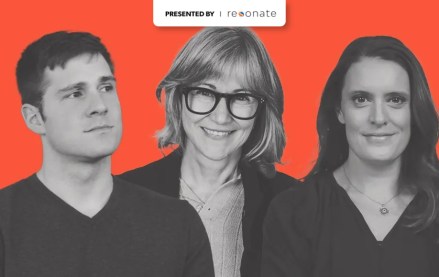Sports publisher GiveMeSport built a tech platform to Facebook-proof its audience

Online sports publisher GiveMeSport prides itself on how quickly it can adapt to Facebook’s algorithm changes. The U.K.-based publisher has built its own tech platform to teach its writers the best social tactics — a strategy it hopes to build on since it was acquired by Canada-based AI firm Breaking Data in December.
Four-year-old GiveMeSport, which has 26 million Facebook likes (ahead of BBC Sport’s Facebook page with 13 million and Bleacher Report’s 7 million), was built on a distributed model, but claims it is immune to the platform’s algorithm changes.
The publisher pulls this off with its proprietary tech, which detects changes in how content should be distributed on the platform. The company started as a social media agency that managed 124 famous athletes and football stars such as Wayne Rooney, which also helped it learn early on about the unpredictability of the algorithm. Three years ago, the company pivoted to become a publisher, continuing to use its proprietary tech, part of which is similar to Mashable’s Velocity, a platform that predicts when stories will go viral. A team of 18 full-time engineers continuously tweaks the platform.
The tech can identify what hasn’t changed in the Facebook algorithm. From there, the publisher can deduce what has changed and adapt its distribution approach accordingly. For instance, if the publisher has seen 30 percent of its traffic drop overnight, it doesn’t worry because it can readjust to restore its traffic flow in a day or so, said GiveMeSport co-founder Nick Thain.
Once, for example, GiveMeSport realized that a particular URL shortener was hurting the reach of its posts, so it stopped using the shortener.
One algorithm change that had publishers wincing last summer was when Facebook began favoring the posts of people’s friends over those of publishers in its News Feed. “One of our solutions to this is targeting; social media publishers can take a lot of learnings from the direct marketing industry here, but essentially the better-targeted the Facebook posts are to the user according to things like [geography], age and interests, the better they perform,” Thain said.
GiveMeSport has 14 permanent writers and 50 freelance journalists generating most of the 2,000 articles it publishes a month on its own site and Facebook. Edit staffers are trained to write for distributed platforms; they create multiple Facebook posts for each of their stories, each appealing to a niche audience. For example, a story about a Chelsea player would have one post written to appeal to general sports fans, another to fans of that specific player and another to fans of the team. Facebook favors that kind of targeted engagement, and the posts get more traffic, said Thain. GiveMeSport will then pay Facebook to target other similar posts to those same audience segments.
GiveMeSport plans to use Breaking Data’s natural language processing tools to see what social algorithms favor to help its journalists stay on top of the best methods for publishing on Facebook. Another area the team is working on developing is around memory, so if a journalist does something like capitalizing an entire word, they’ll be told that this practice is no longer acceptable.
“Artificial intelligence won’t replace creativity, but will help journalists gather news faster. We’ve had an advantage to date with all we do on Facebook, the next stage is to use AI to kick the business on to a new level,” added Thain.
More in Media

Digiday+ Research: Publishers take their focus off events as revenue dips
The percentage of publishers making money from events hit a low as of the first quarter of this year and, as a result, fewer publishers plan on putting a focus on growing that part of their business.

What platforms, brands and agencies hope to get out of the Possible conference in year 2
Year two of Possible is once again being held in Miami Beach, and it will take place from April 15-17 with 3,000 attendees expected to listen to another 200 or so speakers, including Snap’s Colleen DeCourcy, Uber Ads’ Megan Ramm and UM Worldwide’s Matthew Smith.

AI Briefing: Cloud giants’ AI ambitions create new partnerships — and new competitive concerns
Last week, tech companies like Google, Microsoft and Amazon all announced updates more updates for their cloud and AI efforts








